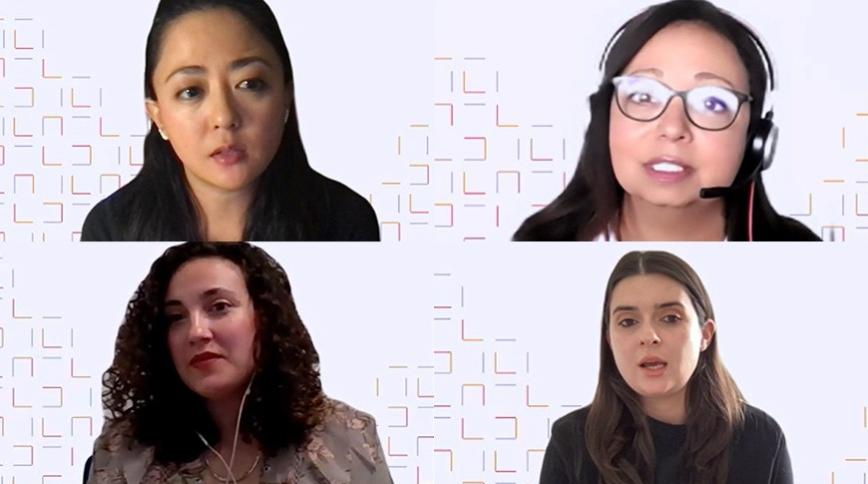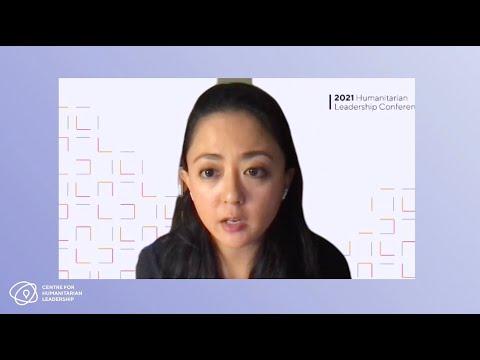Educators as first responders: How locally-led humanitarian action is key to ensuring children aren’t left behind

In April, more than 1000 delegates from across 80 countries came together at the Humanitarian Leadership Conference to determine where change is needed in the aid sector and what a reshaping of the humanitarian ecosystem might look like. Given their work in emergency contexts, the CEOs of three Teach For All network partners were invited to speak on a panel moderated by Dr. Randa Grob-Zakhary, the CEO of Insights for Education. Throughout the panel discussion, Larisa Hovannisian, CEO of Teach For Armenia; Salyne El Samarany, CEO of Teach For Lebanon; and Clarissa Delgado, CEO of Teach for the Philippines, challenged the efficacy of traditional humanitarian systems and explored how to move from rhetoric to action through systemic change.
Why education is a critical part of humanitarian response:
After a humanitarian crisis, education is often the first service to be suspended and the last to be restored, despite the fact it is consistently cited by communities as a top priority. Not only has the COVID-19 pandemic created an education emergency across the globe, with school closures affecting over 90% of the world’s students at some point in the past year, but in already fragile contexts COVID-19 has further exacerbated existing humanitarian needs.
In her remarks, Salyne El Samarany reminded delegates that Lebanon has been in “emergency mode” for more than 10 years. Investing in education, and in mental health support in schools, during such protracted crises helps communities look to the future with a sense of hope. Teach For Lebanon’s Build Back Better emergency response after the 2020 Beirut blast was designed around these principles of looking beyond the pain of the moment and focusing on rebuilding communities.
Larisa Hovannisian reflected on the conflict that broke out between Armenia and Azerbaijan in September 2020, and Teach For Armenia’s efforts to provide emergency support to one third of all displaced students in Armenia. The organization’s Education in Emergencies solutions were co-created with parents, students, and teachers. “Once provided, education cannot be taken away from people,” Larisa asserted.
Local leadership in emergencies:
The conference also challenged the international humanitarian community to radically rethink who they are, how they work, and how they should lead—as well as if they should lead at all.
Clarissa Delgado noted how, when Typhoons Goni (Rolly) and Vamco (Ulysses) struck the Philippines in 2020, destroying vast swaths of infrastructure and homes, it was the local organizations already on the ground that led the emergency response. For example, Teach for the Philippines teachers, thanks to their existing deep collaboration with their school communities, were able to source and channel funds for rebuilding schools and students’ homes.
The situation was quite different seven years earlier, when Typhoon Haiyan (Yolanda)—one of the most powerful tropical cyclones ever recorded—made landfall in the Philippines in 2013 and the international humanitarian community rushed in to provide emergency relief. At that stage, Teach for the Philippines was offered funding to place new teachers in Tacloban, an area that had been completely devastated. However, when Teach for the Philippines met with local mayors and school principals in Tacloban, they specifically asked them to not place new teachers, but rather to allow the surviving teachers to get back into the classroom and recover their sense of routine and normalcy. Disrupting the teachers’ routine by “de-loading” them or easing their school assignments was not what local leadership wanted. Instead, Teach for the Philippines connected the local education system with infrastructure partners to help the municipal leaders rebuild schools—allowing local leaders to drive the recovery in ways that were right for them.
Salyne emphasized that not only can local NGOs be more cost effective than international NGOs when responding to emergencies, but that having them lead the recovery is the only way to ensure its sustainability after a crisis. Local leaders, like Salyne and her Teach For Lebanon team, are invested in Lebanon for the long haul, and won’t pull out of the country once the acute phase of the crisis is over.
Larisa explained how the Teach For All network was founded on the principle of investing in local leadership. Each of the 60 partner organizations is built around the core belief in the power of people, and in developing the leadership of classroom teachers who become changemakers within school communities and education systems. However, across the broader aid sector, calls for localization have not yet been accompanied by the investments in people necessary to leverage their agency and leadership. Although aid agencies continue to include “capacity building” as a key program element, these efforts generally focus on targeted technical skills for the purpose of implementing specific projects, rather than on developing a broader set of leadership capacities such as facilitating dialogue, navigating uncertainty and complexity, mobilizing toward a vision, and systems thinking.
Decolonizing the humanitarian ecosystem:
The speakers then discussed how to shift power dynamics, dismantle colonialism in the humanitarian system, reconceptualize the role of affected communities in humanitarian response, and reimagine the role of international NGOs.
Salyne asked why it is taking so long for the international community to trust locally-led organizations, and why the 2016 World Humanitarian Summit’s Grand Bargain commitment (“at least 25% of humanitarian funding to go to local and national responders as directly as possible”) has not yet been met. Being such a low target, this should have been easy for donors and the international community to achieve, she said. Instead, she described how hard it is for local NGOs to navigate bureaucratic donor processes to apply for and receive funds, which can feel overly burdensome and unrealistic, with heavy reporting and monitoring requirements.
Clarissa discussed how to redistribute power and funding to local organizations. For example, after a crisis the best way to enable a fast and agile emergency response is through unrestricted funding, she shared. In this increasingly ambiguous world, having the agility to act decisively is crucial to meeting communities’ needs. However, she recognized that trust is a two-way street, and that local leaders can’t demand that donors lead from a place of trust without putting accountability, transparency, and good governance at the heart of their own organizations.
The event closed with the panelists discussing why the calls for “localization” have not resulted in the desired shift, suggesting it is perhaps because the international aid community has not yet done the necessary work to reflect on and address their power, privilege, and unconscious biases about where change and leadership need to come from. The humanitarian system, they contended, prioritizes knowledge generated outside of developing contexts, often stripping those in emergency contexts of their agency and leadership.
Learn more about the People-First Approach to Locally Led, Globally Informed Development.




